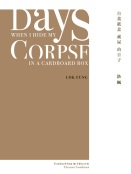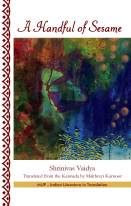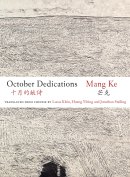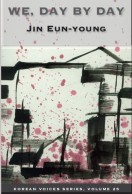September 16, 2019—The American Literary Translators Association (ALTA) is delighted to announce the shortlist for the 2019 Lucien Stryk Asian Translation Prize. This prize, which was inaugurated in 2009, recognizes the importance of Asian translation for international literature and promotes the translation of Asian works into English. This year’s judges are Chenxin Jiang, Vivek Narayanan, and Hai-Dang Phan.
The award-winning book and translator for 2019 will receive a $5,000 cash prize, and the award will be announced during ALTA’s annual conference, ALTA42: Sight and Sound, being held this year from November 7-10 in Rochester, NY. If you can’t join us in person, follow our Twitter, Facebook, and Instagram (@littranslate) for the announcement of the winner!
The 2019 Lucien Stryk Asian Translation Prize Shortlist (in alphabetical order by title):
 Autobiography of Death
Autobiography of Death
By Kim Hyesoon
Translated from the Korean by Don Mee Choi
(New Directions)
The alert and alerting Autobiography of Death by Kim Hyesoon transforms mourning into everyday news of unjust deaths, and into a clarion call for envisioning new life under different rules. To read these poems is to pass through a geography of catastrophe, exclusion, and violence, and to reach their end is to glimpse the necessity for rebirth. Hyesoon’s expansive line, serial composition, and plural address blast open a vital, shamanistic space for the dead to speak with, to, and through the living, and Don Mee Choi’s translations deftly activate a visionary poetry of great speed, volume, and vision. The collaboration between Hyesoon and Choi continues to energize and challenge contemporary world Anglophone poetry into a zone beyond borders.
 Days When I Hide My Corpse in a Cardboard Box
Days When I Hide My Corpse in a Cardboard Box
By Lok Fung
Translated from the Chinese by Eleanor Goodman
(Zephyr Press)
Lok Fung’s Days When I Hide My Corpse in a Cardboard Box brims with urgent poems, as keenly observed as they are introspective—poems that don’t merely chart the political landscape and soundscape of the city, but grapple with it, dance with it, dissect it. In the titular poem, the speaker climbs out of the confined space of the cardboard box into the neon cheer of the city’s “continuous interminable holidays,” both Eastern and Western, before retreating to that makeshift refuge. Lok Fung’s shapeshifting poems are musically and nimbly captured by Eleanor Goodman’s translation.
 A Handful of Sesame
A Handful of Sesame
By Shrinivas Vaidya
Translated from the Kannada by Maithreyi Karnoor
(Manipal Universal Press)
Inventively and sometimes ingeniously translated by Maithreyi Karnoor, Shrinivas Vaidya’s A Handful of Sesame takes in a full century or more in the life of a family in a small region of southwest India, giving us an open-ended meditation on the many ironies, reversals, and hidden transformations that history brings. For all its wide range and vision, Vaidya’s novel is also astounding in its recovery of the minutest details of everyday life, giving an account of place that feels perhaps richer and more complex than any official Indian history (in English) thus far.
 October Dedications
October Dedications
By Mang Ke
Translated from the Chinese by Lucas Klein with Jonathan Stalling and Huang Yibing
(Zephyr Press & The Chinese University Press of Hong Kong)
With the publication of October Dedications, a crucial body of work that once transformed and even helped to invent modern Chinese poetry from the 1970s onwards finally becomes available to readers of the English language. The austere economy and deceptive simplicity of these poems, challenging to translate, shines through with startling clarity in the versions of Lucas Klein, Jonathan Stalling, and Huang Yibing.
 We, Day by Day
We, Day by Day
By Jin Eun-young
Translated from the Korean by Daniel T. Parker and YoungShil Ji
(White Pine Press)
With patience and passion, Jin Eun-young’s We, Day by Day dramatizes the enactments of everyday life: those ways in which we make, unmake, and remake our lives, day by day, alone and with others. At home in the shorter lyric and capable of blazing imagery, Jin Eun-young writes a philosophically minded, big-spirited poetry of the moment. Line by nimble line, image by radiant image, these restless poems continually light upon new perceptions—on sorrow, beauty, truth, love, and happiness. YoungShil Ji and Daniel T. Parker have created a wonderfully supple, lasting music through their translation.
